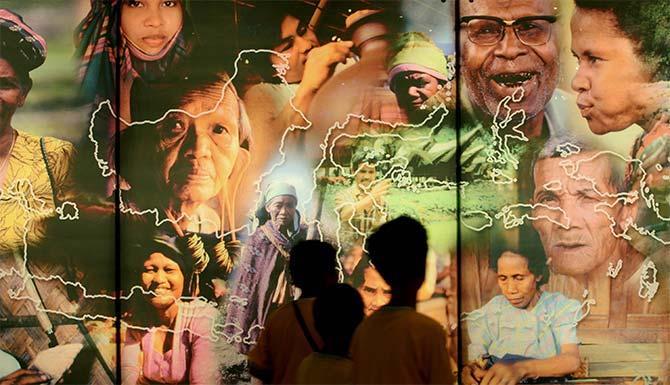
Nusantara is a term used to describe the vast Indonesian archipelago that stretches across the tropics from Sumatra in the west to Papua in the east. It is a region characterized by immense geographic, biological, ethnic, linguistic and cultural diversity. The word “nusantara” first appeared in Javanese literature in the 14th century, and referred to the enormous chain of islands that constituted the Hindu-Buddhist Majapahit Empire.
Nusantara is a compound noun derived from ancient Javanese: nusa ("islands") and antara (“opposite” or “across from”). In his book “Negarakertagama,” written circa 1365, the author and Buddhist monk Mpu Prapanca described the territory that comprised Nusantara, which included most of modern Indonesia (Sumatra, Java, Bali, the Lesser Sunda Islands, Kalimantan, Sulawesi, part of the Malukus and West Papua), plus a substantial portion of the territories that now comprise Malaysia, Singapore, Brunei and the southern Philippines. As of 2010, this region was inhabited by approximately 1,340 distinct ethnic groups speaking nearly 2,500 different languages and dialects, according to Indonesia’s Central Bureau of Statistics.
Indonesia’s national motto – Bhinneka Tunggal Ika – was coined during the so-called golden age of Majapahit. Bhinneka means “different” or “diverse.” The Sanskrit word “neka” (like the Latin term “genus”) signifies “kind,” and is the etymological antecedent of the commonly used Indonesian word “aneka,” which means “variety.” Tunggal means “one.” Ika means “that.” Thus, Bhinneka Tunggal Ika may be literally translated as “Variative (ie, different) Yet One.” Within the context of modern Indonesia, this implies that despite enormous ethnic, linguistic, cultural, geographic and religious differences, the people of Indonesia are all citizens of a single, unified nation – the Unitary State of the Republic of Indonesia.
Yet the connotations of this motto are far more profound and universal in their significance than may appear at first glance. In fact, the concept, historical precedent and spiritual reality of Bhinneka Tunggal Ika may serve as a model for establishing a true alliance of civilizations, capable of addressing a wide array of dangers that threaten contemporary humanity.
High among those dangers, of course, is the Islamic State of Iraq and Syria, known as ISIS.







 resized.png)
